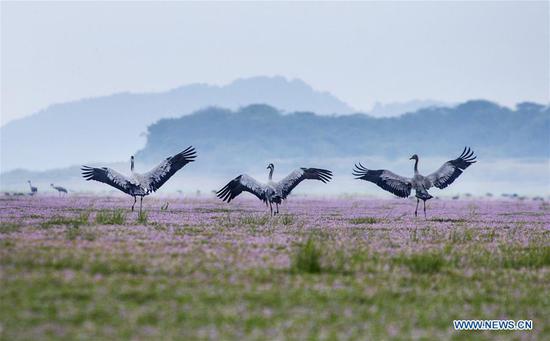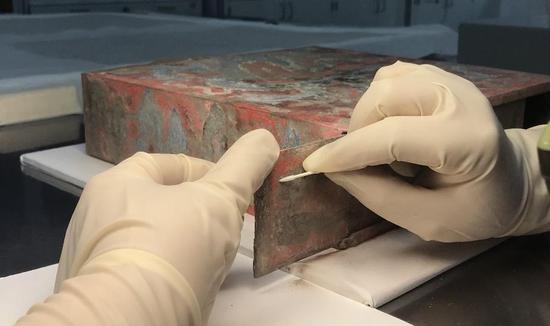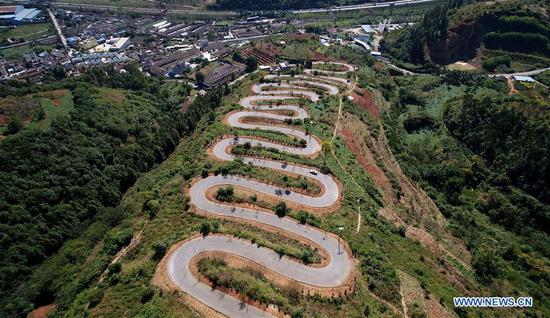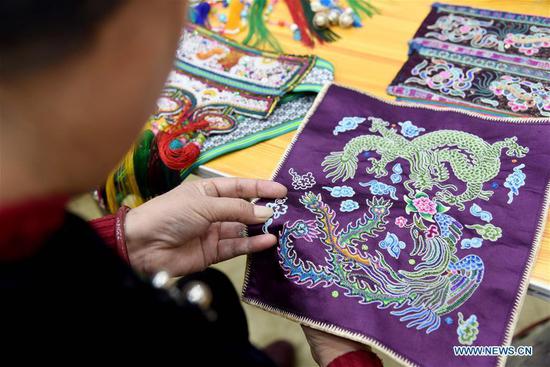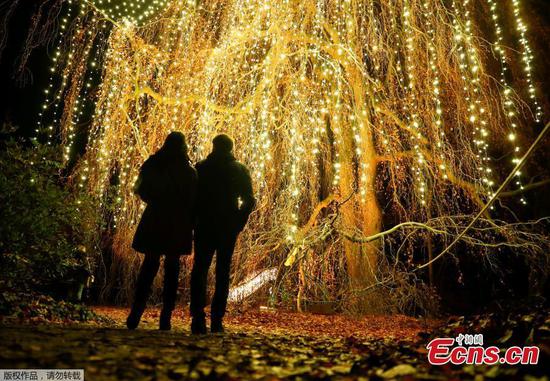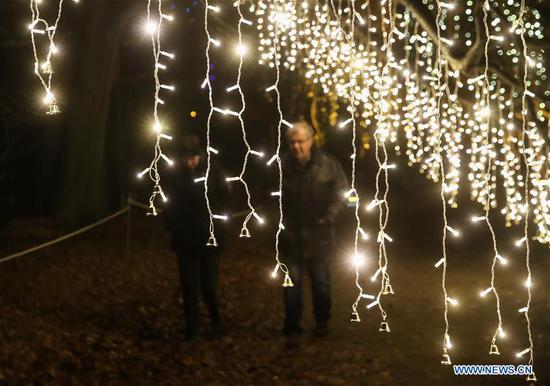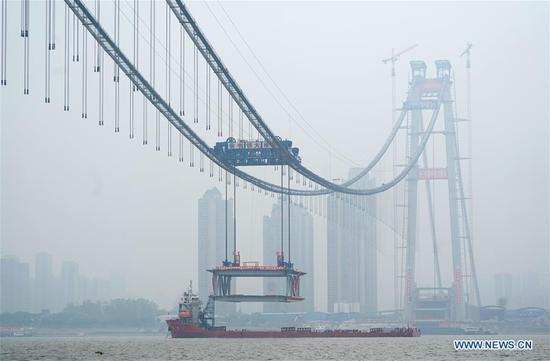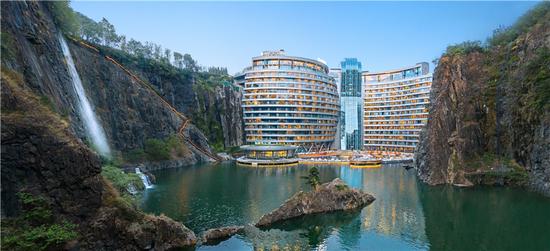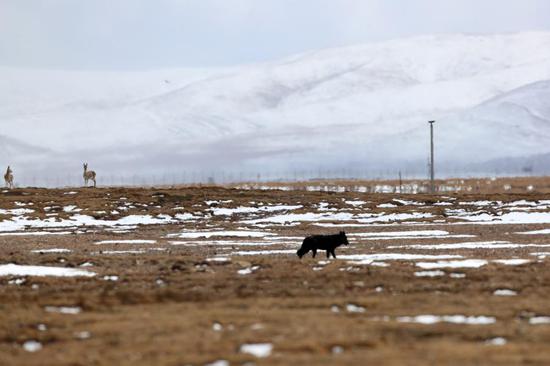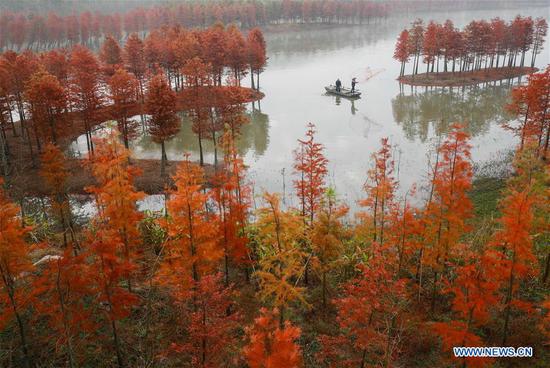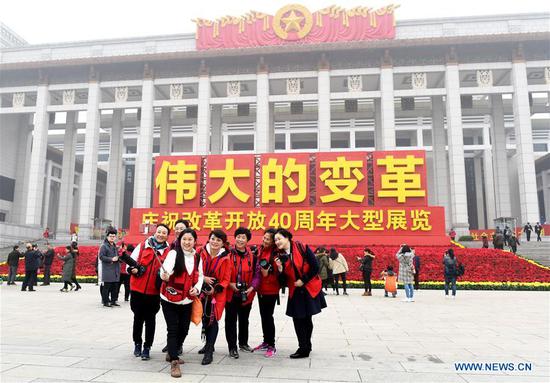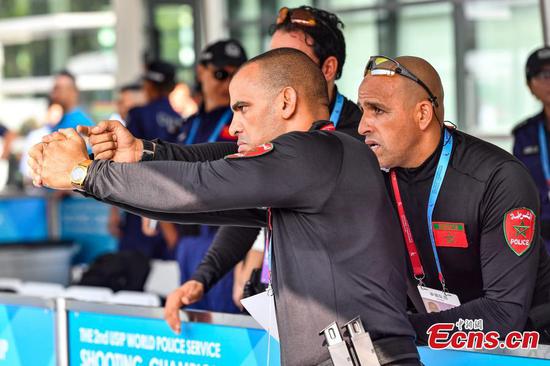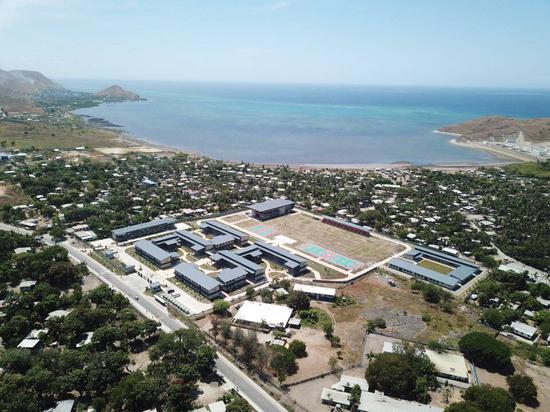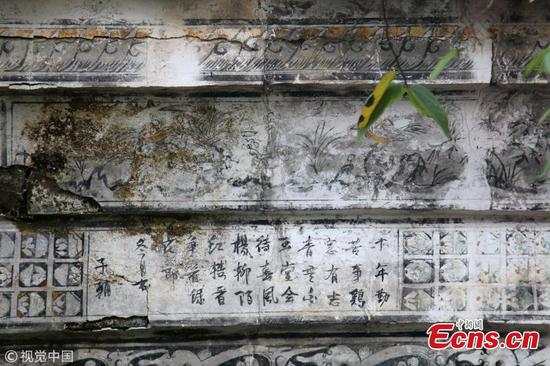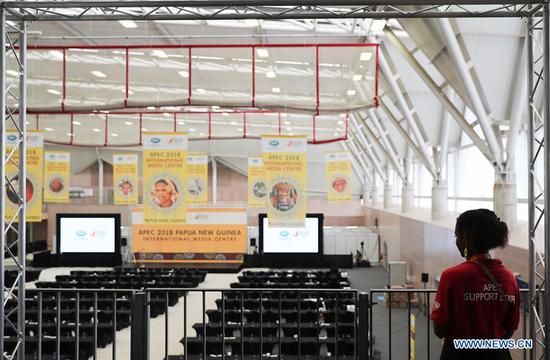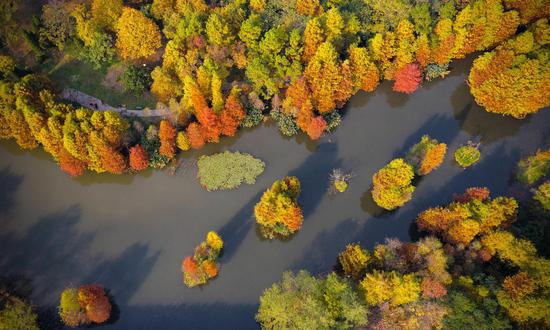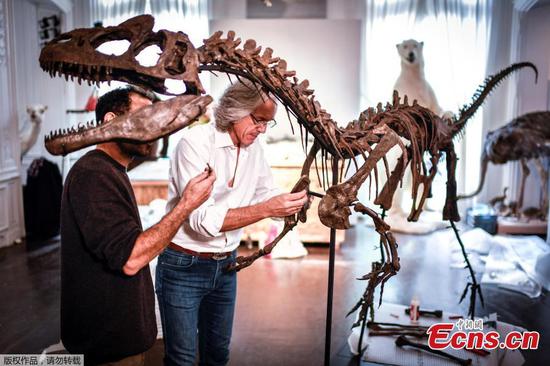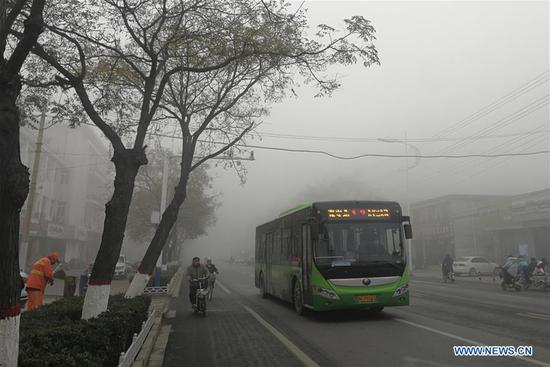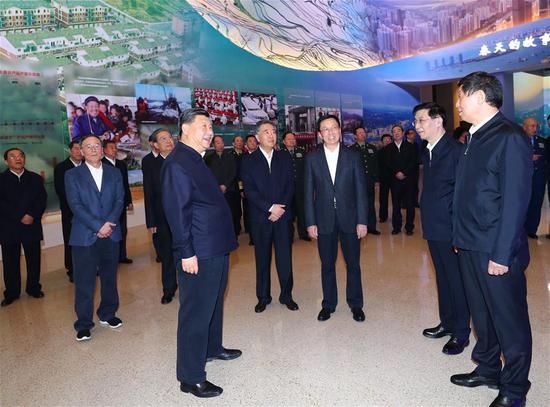
Newly released stamps for Beijing's 2022 Winter Games are shown at a ceremony on Friday. They depict cross-country, alpine, biathlon and freestyle skiing. The event was held by the Organizing Committee for the 2022 Olympic and Paralympic Winter Games and China Post Group. (WANG JING/CHINA DAILY)
Beijing has stepped up a notch in fulfilling its promise to host a green and sustainable Winter Olympics in 2022 by launching a special advisory body to support the efforts.
The Beijing Organizing Committee for the 2022 Olympic and Paralympic Winter Games announced the formation of a sustainability advisory committee on Friday to facilitate the development of sustainable economy and eco-environment improvement riding on the momentum of the Games.
The Committee consists of three senior advisers and 23 members from colleges, research institutions and government departments related to environment, construction, finance and urban planning.
The committee will gather at a plenary once a year and participate in workshops and field study tours on a consistent basis to help the organizers address issues regarding sustainability throughout the full course of Games organization, venue construction and operation as well as environmental protection.
The contribution of the advisory body is expected to help Beijing set a new standard in utilizing the Olympic influence to boost sustainability in the host region's social and ecological progress, said the organizing committee.
"The Olympics' impact is huge and profound, and we should take advantage of the opportunity to make the skies clearer, land greener and water cleaner," said Zhang Jiandong, executive vicepresident of the Beijing 2022 organizing committee.
"The organization of the Winter Olympics involves construction in large areas of natural environments so we need sustainable solutions from the very beginning to post-Games operations with an eco-responsible mindset," said Zhang, also a vice-mayor of Beijing.
Beijing's plan to repurpose 11 existing competition and noncompetition venues from the 2008 Summer Games in the downtown area to host all the ice sports in 2022 has offered a compelling example of sustainability.
The International Olympic Committee heaped praise upon the efforts, citing the host's active response to the Olympic Agenda 2020 reforms, which were introduced in 2014 to make future Games affordable and sustainable.
However, the construction of new snow sports venues in natural reserves in northwest Beijing's Yanqing district, the reliance on man-made snow and the air quality during winter in Beijing have raised concerns in the buildup to the 2022 Olympics.
The advisory committee promised that it will draw on the wisdom of domestic and international experts to provide solutions as reasonable and practical as possible.
"An intensive display of the latest technologies and models of scientific development involving energy saving, reuse of waste and green construction will be put on during the Games," said He Jiankun, director of the committee.
He, a climate change and resource management expert at Tsinghua University, reveals the committee has filed a proposal to power the Yanqing cluster and Chongli district in Beijing's co-host Zhangjiakou, Hebei province, with 100 percent renewable energy from wind and solar power.
"The sustainable development should be a lasting process inspired by the Games while benefiting beyond the action," said the 78-year-old.
At a later event on Friday, the Beijing 2022 organizing committee also launched the second set of commemorative stamps for the Games, which comprises four pieces featuring skiing events-cross-country, alpine, biathlon and freestyle.
The unveiling is part of a licensing program, which authorized the China Post Group to design and release Beijing 2022-themed stamps every year through 2022. The first set depicting the emblems of the Olympic and Paralympic Games was launched on Dec. 31, 2017.









